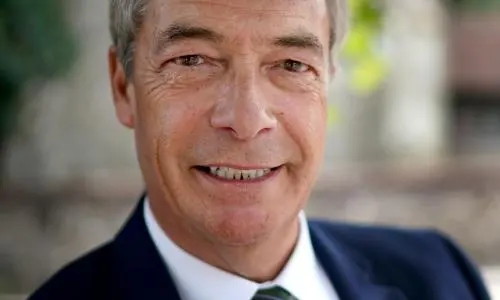Nigel Farage has vowed to help thousands of people flood big banks with demands for details about why they were denied an account, as allies said his treatment by Coutts and NatWest had turned him into Britain’s newest “consumer champion”.
The former Ukip leader is to spearhead a website assisting anyone who wants to find out why they have been denied a bank account. Farage used a subject access request to discover that, despite initial denials by Coutts, his political views had played a part in the closure of his account.
Farage is said to want to make the independent website a non-partisan tool designed to help those who believe they have been denied banking services because of their political views. It will provide them with a step-by-step guide to demanding the personal information a bank holds about them.
“This is cross-party, it is non-partisan,” said an ally. “Dare I say, how the liberal elite – for want of a better term – have managed to turn Nigel Farage into one of the country’s leading consumer champions, I have no idea.”
There has already been a huge fallout from Farage’s case. Dame Alison Rose, the chief executive of NatWest Group, eventually stood down in the wake of the row after she revealed she had been the source of a BBC story claiming Farage’s account had been closed for commercial reasons.
She was soon followed out of the door by Peter Flavel, chief executive of Coutts. Farage also wants NatWest Group’s chairman, Howard Davies, to stand aside.
While Downing Street made clear that Rose could not stay in her post, the government appears to be more protective of Davies. Andrew Griffith, the City minister, said on Friday night that it would not be “helpful” for the NatWest Group’s chairman to quit.
However, Davies is already unpopular with some on the Tory right. He unleashed a stinging criticism of Liz Truss and Kwasi Kwarteng’s disastrous mini-budget in front of hundreds of his staff last year. He explained how he felt “embarrassed” in its aftermath while attending a conference for the International Monetary Fund, the Washington-based lender of last resort.
Davies has been caught up in the backlash from Farage’s case because of his initial support for Rose. Both Rose and the bank’s board had hoped she would survive with a mea culpa and docked pay for talking to the BBC’s business editor, Simon Jack, about Farage’s relationship with Coutts.
Davies, as chair, had taken soundings from the Treasury at several points last Tuesday after the BBC issued apologies to Farage over its story, which had cited a source at Coutts. He hoped that a statement from himself and Rose would be enough to calm shareholders and get through to the banking group’s half-yearly financial results being released on Friday.
In fact, it only held for a few hours. He was informed that ministers were unhappy about the statement, and that Rose had to go. With UK taxpayers still owning 39% of the banking group, it was regarded as an instruction, not a request. By 1.32am on Wednesday morning, Rose was gone.
While Rose admitted to speaking to Jack, an independent investigation led by the law firm Travers Smith will examine what was said and when. It is part of a wider review. It will look into how Farage’s accounts at Coutts were closed, why they were shut down and how such a controversial set of statements about his political views and actions was compiled.
The review is also set to find out if Farage is an outlier or a sign of a wider issue at Coutts, checking all accounts closed at the private bank over the past 24 months. It will follow a similar approach as the Farage-specific investigation, looking at questions of how, why and what was said to all other customers whose accounts were shut down.


